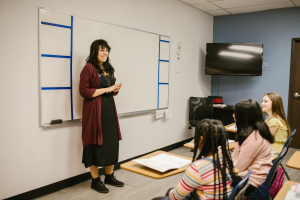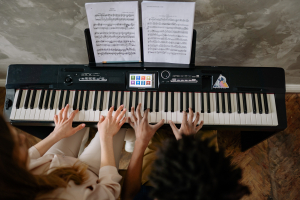Top 10 Most Asked Librarian Interview Questions with Answers
Obtaining a position as a librarian necessitates a certain level of qualification and experience, in addition to preparing for the interview process. Here is a ... read more...list of the most frequently asked librarian interview questions with answers.
-
During a job interview, you've probably heard the common interview question, "What interests you about this role?" When a hiring manager or interviewer asks this question, it can be difficult to know how to avoid generic responses and instead tailor a response that best highlights your unique skills as a candidate.
Even if you have the perfect CV and cover letter and are the perfect candidate on paper, being prepared is a huge part of the interview and job search success. If you're not prepared for your interview or don't know the best way to sell yourself to a prospective employer or hiring manager, then you are going to be out of luck.The interviewer is interested in knowing that you applied for this position because it will fulfill you. You will need to devote a significant amount of time to the task. The interviewer wishes to hire someone who will stay for an extended period of time. Demonstrate to the interviewer that you are genuinely interested in the position. Consider the library or institution for which you are interviewing. Avoid providing a generic response and instead tailor your response with as much specific information as possible. Research the library or institution and its current or recent projects before the interview. Highlight any aspects of those projects that pique your interest.
Answer: As a librarian, I want my library to be a part of the community. A library is about more than just books; it is also about bringing people together. I followed your recent push to increase the number of community groups that use the library, including offering extended hours to allow more groups to use the facilities. Such projects are the reason I want to work here.

Image by Van Tay Media via unsplash.com 
Image by Gabrielle Henderson via unsplash.com -
One of the reasons public libraries are regarded as important third-place institutions is that they and their librarians have gradually taken on functions other than lending out books. Many librarians serve as ad hoc social workers and navigators in their communities. They assist locals in navigating the complexities of life, from navigating the health care system to assisting those in need of housing. This "go-to" role has influenced library programming and events, with libraries offering health, housing, literacy, and other services.
A library is more than just a place where books are stored and lent out. Libraries and librarians play an important role in the community. The interviewer wants to know that you understand the scope of your role and are committed to ensuring that the library and you, as the librarian, have a positive impact on the community. Demonstrate your understanding of this by providing examples of how your role can positively impact the community.
Answer: The purpose of a library and its librarian is to educate and assist the community. Of course, the library stores and lends books, but that is how it connects with and helps the community. A librarian who understands the demographics of the community can ensure that the library's outreach is tailored to that demographic. For example, I am aware that unemployment is a significant issue in the neighborhood surrounding this library. If I worked here, I would be eager to implement a program to help locals find work. Initially, I would investigate what other issues are negatively impacting the community and use that information to plan additional programs. I envision the library as a gathering place for people to come together, learn, and grow as a society.

Image by Maranda Vandergriff via unsplash.com 
Image by Alejandro Escamilla via unsplash.com -
Your response to this question will demonstrate to the interviewer how comfortable you are in difficult situations. Before the interview, research the library's policy regarding the types of materials that users are not permitted to access on library computers. What is inappropriate to one person may not be to another, so you should be aware of the library's usage policy. If you are unfamiliar with the policy, consult with the interviewer before answering the question. Make it clear in your response if you are familiar with the policy. Maintaining calm while answering this question will demonstrate to the interviewer that you are confident and in control of the situation.
Answer: Although I assume the patron is referring to pornography, the first thing I would do is ask the individual what he or she saw. I need this clarification first so that I can handle the situation in accordance with the library's usage policy. For example, I understand that the library's usage policy prohibits the use of library computers to access pornographic material.
In such a case, I would approach the other patron, calmly explain the policy, and request that they refrain from accessing such sites. If they were obstinate, I would remind them that they had agreed to follow the usage policy and that if they were unwilling to do so, I would have to ask them to end their session and leave. Even if the customer becomes upset or agitated, I will remain professional, courteous, and respectful throughout the encounter.

Image by LinkedIn Sales Solutions via unsplash.com 
Image by Kenny Eliason via unsplash.com -
The interviewer wants to know how you envision the library in the future. Share your thoughts on how the library fits into the community and what role you see the library playing for its users. Your response should demonstrate that you see the library as a welcoming place for all people, and that it should be a part of the community it serves, whether that community is in an educational setting or out in the community.
Answer: A library, in my opinion, is an essential part of any community. I am well aware that society is becoming increasingly digital, including digital books and digital research. This does not mean that libraries are extinct. Libraries are a "third place," neither work nor home, but rather a place where people can gather freely in a safe environment to read, learn, interact, and randomly browse shelves. The library is a public space where everyone is welcome to come and receive our excellent customer service for free.
One concept I'd like to investigate is the concept of various "maker spaces," which are areas of the library where library patrons can create and display their own art. Another option would be to host self-publishing and print-on-demand technologies. I believe that libraries of the future will evolve from passive, silent spaces to interactive, creative hubs of local culture. At the community level, where people come together to grow and thrive, the emphasis is on user-generated content.

Image by Headway via unsplash.com 
Image by Redd F via unsplash.com -
This is an important skill because today's professions all use different software tools and programs. Therefore, if you possess technical skills along with professional skills, then you are definitely the right candidate for the position that employers are looking for.
If you pay attention, you will see that the list of required skills is always explicitly attached to the job description of the employer. This makes it easier for employers to find potential candidates. However, businesses are also willing to train candidates who have no experience but show a passion for the job.School librarians are in charge of teaching students how to use technology and how to conduct online research. Employers ask this question to ensure that you have prior experience with technology. Share what types of technology you're familiar with and how you've used it in your career in your response.
Answer: "As a School Librarian, I have extensive experience with technology." I am skilled at managing the library's collection of books, magazines, and other resources using library management systems such as Follett Destiny and Koha. I also use online databases like EBSCOhost and ProQuest to provide scholarly articles and research materials to students and faculty. In addition, I am familiar with a variety of educational software programs, including Microsoft Office Suite, Adobe Creative Cloud, and Google Classroom.Furthermore, I am knowledgeable about current educational technology trends and keep up to date on new tools and technologies that can be used to improve student learning. For example, I recently installed an interactive whiteboard system in our library to assist students in better visualizing concepts. My goal is to ensure that all students have access to the best learning technology available."
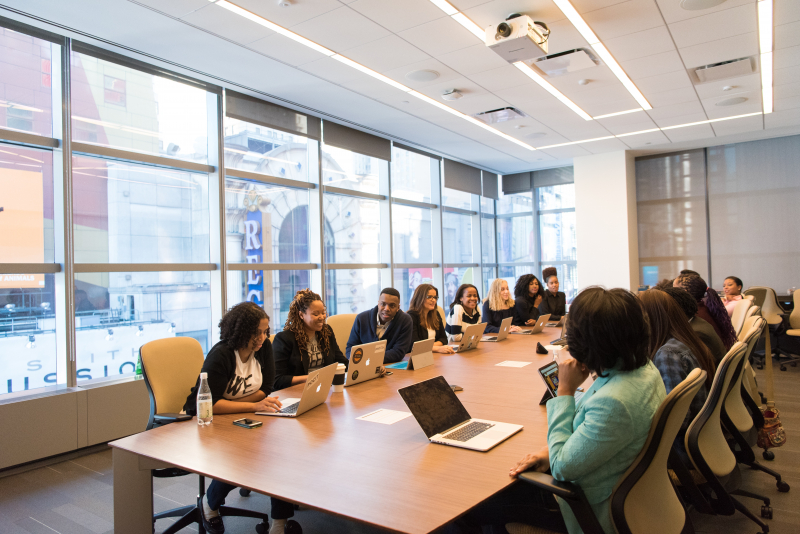
Image by Christina @ wocintechchat.com via unspash.com 
Image by Christina @ wocintechchat.com via unsplash.com -
Collaboration is a sign of excellence for school librarians. School librarians in today's schools strive to integrate their instruction with other teachers in order to improve student achievement and meet professional standards. Collaboration among educators has a long history as a practice that can result in better learning outcomes, more fulfilling job experiences, and increased student engagement in the school library. School librarian collaboration models indicate that successful collaboration with teachers entails integrating instruction and curriculum to improve student learning. Examining successful collaboration between school librarians and teachers to learn more about what strategies lead to successful outcomes will benefit both educators and students.
School librarians are frequently in charge of assisting teachers in incorporating the library into their curricula. This question allows interviewers to learn how you intend to assist your future colleagues with this process. In your response, provide a specific example of how you assisted a teacher in incorporating the library into their lesson plans and the results you obtained as a result.
Answer: "I am an experienced School Librarian with a proven track record of assisting teachers in incorporating the library into their curriculum." One example is when I collaborated with a third-grade teacher to create a unit on nonfiction books. We began by discussing the unit's objectives, and then I suggested a list of books that would help us achieve those objectives. I also gave tips on how to use the library catalog to find additional resources and how to teach research skills. Finally, I devised activities to encourage students to interact with the material they were reading. This project was a huge success, and the teacher was overjoyed with the results."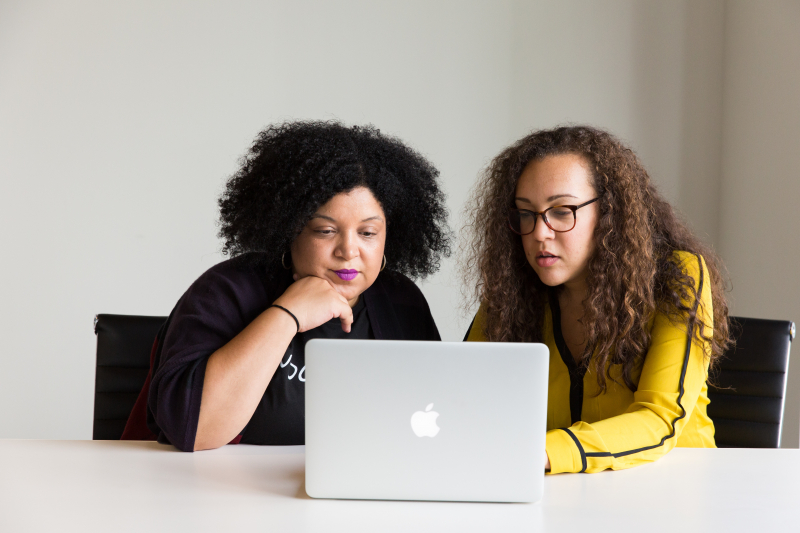
Image by Christina @ wocintechchat.com via unsplash.com 
Image by Christina @ wocintechchat.com via unsplash.com -
A rewarding job could mean it pays well, provides a good work-life balance, is low-stress, or provides a work environment, tasks, and responsibilities that are fulfilling and satisfying, depending on what is most important to you. There are numerous factors that can contribute to job satisfaction, and different people may have different requirements for what makes their job satisfying. Some people consider the most rewarding jobs to be those that allow them to perform tasks that benefit others every day. Health care, law, education, and social work are some industries that allow you to help others.
An interviewer may ask this question for a variety of reasons. They may be attempting to determine your level of job satisfaction, or they may be attempting to determine what motivates you. In either case, it is critical to provide an honest and thoughtful response to this question. Some possible reasons why being a librarian is rewarding include having the opportunity to help people find the information they need, being surrounded by knowledge and books, and having the satisfaction of knowing you are helping to promote literacy.
Answer: "Being a librarian has many rewarding aspects." One of the most rewarding aspects is assisting people in finding the information they require, whether for pleasure or for work. It's also very rewarding to see people grow in their love of reading and in their understanding and use of library resources. "Working with colleagues to develop and maintain a high-quality collection of materials that meets the needs of the community is another rewarding aspect of the job."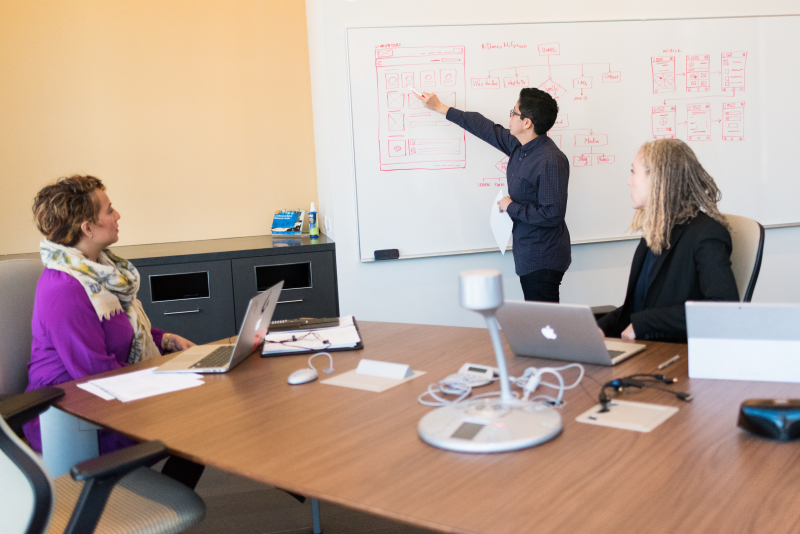
Image by Christina @ wocintechchat.com via unsplash.com 
Image by Christina @ wocintechchat.com via unsplash.com -
After going through the interview and exam stages, starting a new job is a long way to adjust. The first few days at work are always the most stressful time in your career, but you can reduce the daily pressure by carefully planning the tasks you will do during these days.
The interviewer is attempting to assess the librarian's enthusiasm for the profession and determine whether or not they would be a good mentor for someone considering a career in librarianship. It is critical to determine whether the librarian is enthusiastic about their job and willing to help others learn about it.
Answer: "There are a few things to think about if you want to work as a librarian." First, consider the type of library you want to work in. Public libraries, school libraries, and academic libraries are just a few examples. Each library type has its own set of challenges and rewards. Second, consider the type of position you want to have. Librarians can work on anything from cataloging books to creating programming for patrons.There are numerous roles available within the profession, so it is critical to find one that matches your skills and interests. Finally, consider the type of environment in which you would like to work. Libraries can be fast-paced and crowded, or they can be more relaxed and laid-back. Before making a decision, consider what type of environment you would be most comfortable in."

Image by Christina @ wocintechchat.com via unsplash.com 
Image by Christina @ wocintechchat.com via unsplash.com -
Today's public libraries are at a crossroads. As the millennium approached, there was much concern about whether public libraries would become obsolete, and there were constant questions about how libraries could remain relevant in the age of online information. Nearly two decades later, libraries have successfully transitioned from being primarily concerned with materials to being community anchors for formal and informal learning, technology access, workforce development, and community engagement.
The interviewer is most likely attempting to assess the librarian's understanding of the challenges confronting the library industry as well as the librarian's priorities. The interviewer must understand the librarian's priorities because they will most likely influence how the librarian approaches his or her work.
Answer: "Today, libraries face a number of significant challenges." One example is the digital divide; not everyone has access to or understands how to use the internet, so libraries play an important role in providing internet access and computer literacy training. Another issue is funding; many libraries are struggling to stay open as a result of budget cuts, so it's critical to advocate for library funding at the local, state, and federal levels. Finally, staying relevant in a world where people can get information from anywhere is a challenge for libraries; libraries must provide unique services and resources that people cannot find elsewhere."

Image by LinkedIn Sales Solutions via unsplash.com 
Image by LinkedIn Sales Solutions via unsplash.com -
The interviewer will want to know why you want to be a librarian and why you want to work at that specific library. They'll want to hear that you've done your homework and are knowledgeable about specific programs, are familiar with their offerings, or are impressed by their offerings for the community they serve. Whatever drew you to a particular library, be specific with your interviewer and share your passion for books and their library.
There are numerous advantages to working in a library. Libraries offer a quiet, secure environment in which to study and work. They also provide a wide range of resources and services to assist people with their research and information needs. Libraries play an important role in the educational system and in the community.
Answer: "There are numerous advantages to working in a library, including the opportunity to work with a diverse range of people, the opportunity to learn new things, and the satisfaction of assisting others." Libraries serve an important community function, and those who work in them can take pride in knowing that they are making a difference. Working in a library can also be a great way to meet new friends and colleagues."
Image by Amy Hirschi via unsplash.com 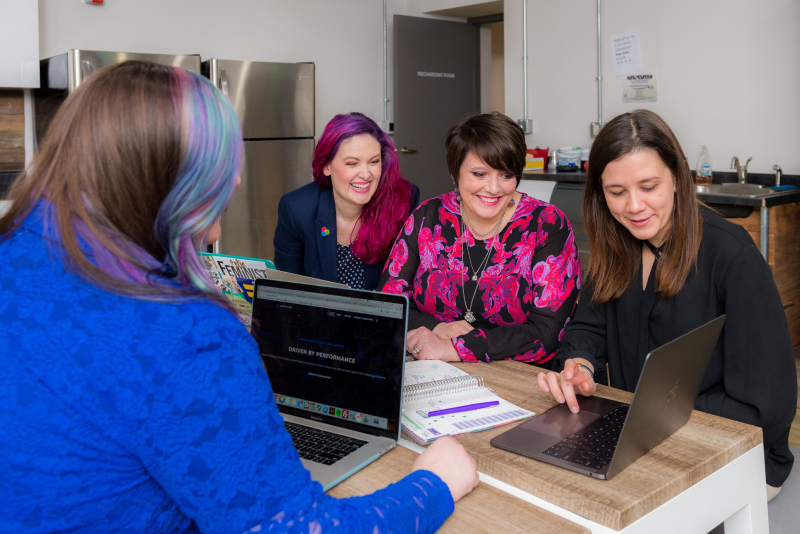
Image by Kylie Haulk via unsplash.com













